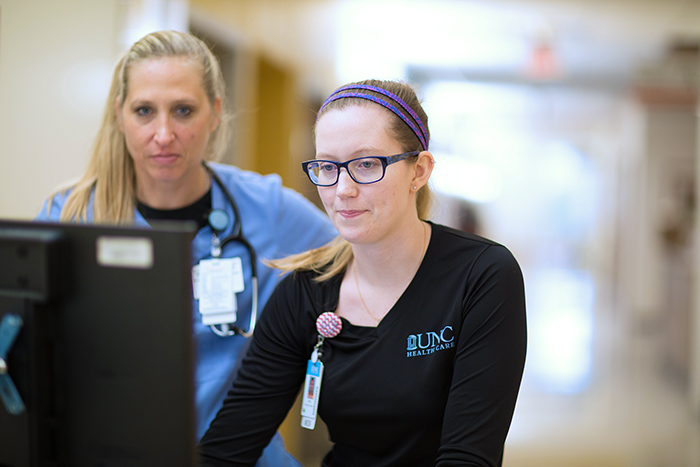In the recent U.S. News and World Report rankings of America’s Best Hospitals, UNC Hospitals was nationally ranked in five of the 16 specialties. In this series by UNC School of Medicine, a closer look is taken at these specialties to learn more about what makes them so outstanding.

by Matt Englund
For a patient with a difficult diagnosis or a complicated treatment plan, it can help to have a familiar face that greets them each time they come in for an appointment. At the N.C. Cancer Hospital, ranked 32nd in the nation in the 2015 U.S. News and World Report listing of the country’s best hospitals, nurses are on the front line of patient care, helping patients navigate their sometimes complicated treatment plans and serving as a point of contact between patient families and care teams.
“We operate in big multidisciplinary teams,” says Paula Stinson, RN, quality management coordinator for the bone marrow transplant program. “Nurse practitioners, physicians assistants, attending doctors, navigators, coordinators—cancer care has a lot of moving parts, and the nurse is at the center of all that.”
As cancer care has evolved over the past few decades, how nurses understand their role in the process has also changed dramatically. Part of this shift in perception has been a growing awareness of how substantial and far-reaching the ramifications of cancer diagnosis can be. Ann Hornback, RN, nurse manager in GYN-Oncology, emphasizes that the role of nursing goes well beyond symptom management.
“It’s holistic care that nursing can provide,” she says.
Often, this means helping patients with things that don’t directly relate to their cancer diagnosis. Nurses are able to offer this kind of holistic care because of the trusting relationships they are able to build with patients and their families.
